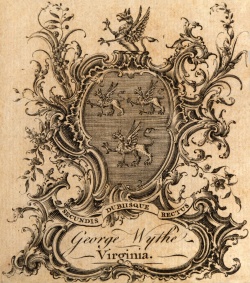Difference between revisions of "Henrici Mori Cantabrigiensis Opera Omnia"
From Wythepedia: The George Wythe Encyclopedia
Ammorris01 (talk | contribs) (→See also) |
Mvanwicklin (talk | contribs) m |
||
| (2 intermediate revisions by 2 users not shown) | |||
| Line 6: | Line 6: | ||
|commontitle= | |commontitle= | ||
|vol= | |vol= | ||
| − | |author=Henry More | + | |author=[[:Category:Henry More|Henry More]] |
|editor= | |editor= | ||
|trans= | |trans= | ||
| − | |publoc=Londini | + | |publoc=[[:Category:London|Londini]] |
|publisher=Typis J. Macock, impensis J. Martyn & Gault. Kettilby, sub insignibus Campanae, & Capitis Episcopi in Coemeterio D. Pauli | |publisher=Typis J. Macock, impensis J. Martyn & Gault. Kettilby, sub insignibus Campanae, & Capitis Episcopi in Coemeterio D. Pauli | ||
|year=1679 | |year=1679 | ||
| Line 19: | Line 19: | ||
}} | }} | ||
| + | More was a rationalist theologian.<ref> Henry, John, "Henry More", The Stanford Encyclopedia of Philosophy.</ref> He attempted to use the details of 17th-century mechanical philosophy—as developed by René Descartes—to establish the existence of immaterial substance.<ref>Ibid.</ref> He was a prolific writer of verse and prose. The Divine Dialogues (1688), a treatise which condenses his general view of philosophy and religion. Like many others he began as a poet and ended as a prose writer. This work was a folio of all of his works, translated into Latin at the urging of a friend as it was believed this would help his works be remembered as classics.<ref>Ibid.</ref> | ||
==Evidence for Inclusion in Wythe's Library== | ==Evidence for Inclusion in Wythe's Library== | ||
| Line 29: | Line 30: | ||
<references/> | <references/> | ||
| + | [[Category:Henry More]] | ||
| + | [[Category:Jefferson's Books]] | ||
[[Category:Religion]] | [[Category:Religion]] | ||
[[Category:Titles in Wythe's Library]] | [[Category:Titles in Wythe's Library]] | ||
| + | |||
| + | [[Category:London]] | ||
Latest revision as of 09:19, 13 June 2018
by Henry More
| Henrici Mori Cantabrigiensis Opera Omnia | ||
|
at the College of William & Mary. |
||
| Author | Henry More | |
| Published | Londini: Typis J. Macock, impensis J. Martyn & Gault. Kettilby, sub insignibus Campanae, & Capitis Episcopi in Coemeterio D. Pauli | |
| Date | 1679 | |
More was a rationalist theologian.[1] He attempted to use the details of 17th-century mechanical philosophy—as developed by René Descartes—to establish the existence of immaterial substance.[2] He was a prolific writer of verse and prose. The Divine Dialogues (1688), a treatise which condenses his general view of philosophy and religion. Like many others he began as a poet and ended as a prose writer. This work was a folio of all of his works, translated into Latin at the urging of a friend as it was believed this would help his works be remembered as classics.[3]
